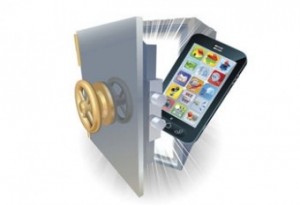The company behind the popular app is reportedly hiring experts in the field of wearables.
Some of the latest reports about Snapchat are now revealing that the company has started hiring wearable technology experts not for the purpose of creating a mobile app, but that are instead focused on the creation of hardware.
This is interesting because it would take the company well out of the current limits of mobile software.
While the initial assumption had been that Snapchat was looking to create mobile apps that would be supported by wearable technology, the discovery that the hires they’re seeking are not necessarily focused on software, but that are actually in the hardware category, has changed this prediction altogether. This has sent the rumor mill spinning and many speculations are that the company is seeking to make its own device, more specifically in the form of smartglasses.
The Snapchat app is exceptionally popular and using it through wearable technology could be interesting.
 At the moment, this social network boasts more than 100 million daily users that make up its user base. By adding wearables to the mix, it could break away from its current format in quite the unique direction.
At the moment, this social network boasts more than 100 million daily users that make up its user base. By adding wearables to the mix, it could break away from its current format in quite the unique direction.
Among the more notable hires that have already been made in the wearables hardware category are: Mark Dixon, who was a Microsoft HoloLens recruiter; as well as Eitan Pilipski, who had been a part of the Qualcomm Vuforia team that was focused on creating augmented reality computer vision tech. He was hired in January as the engineering director.
While this strategy by Snapchat is quite interesting and will be new to the company, it won’t entirely be a first in the social media world. Facebook did, after all, make the $2 billion acquisition of Oculus in 2014. Still, the willingness of Snapchat to take a new direction with wearable technology that remains primarily untested is quite a striking move and is one that is quite likely to keep the social app in the spotlight for quite some time. These rumors are further supported by indications that Snapchat would be making moves in the wearables market for some time now, through research and startup acquisitions.
The marketplace and technology giant is bringing encryption back after considerable consumer upset.
Amazon.com has now announced that it will be returning its encryption mobile security feature to its Fire tablets following complaints and upset from privacy advocates and customers that accused the massive online marketplace of quietly slipping the security option off the devices with its latest operating system release.
A spokesperson for the company promised that the feature would be returned to the OS in the spring.
Robin Handaly, spokesperson for Amazon.com, explained that “We will return the option for full-disk encryption with a Fire OS update coming this spring.” The decision to remove the encryption component of the Fire operating system’s mobile security fell into the spotlight quite suddenly this week. Amazon explained that the feature had been removed in one of its Fire OS versions that first started shipping in the fall of 2015 because there weren’t many customers who had used it in previous versions.
This mobile security feature scramble’s the device data so it is accessible only to someone who has entered a password.
 The encryption feature was built into previous versions of the Fire operating system and blocked access to the contents of the device to anyone who did not know the correct password. According to Bruce Schneier, a widely recognized cryptologist, Amazon’s choice to take down this encryption was “stupid.” Schneier was one of the large number of people and groups who were public about their criticism of Amazon’s removal of the encryption security and who publicly requested that the company bring it back.
The encryption feature was built into previous versions of the Fire operating system and blocked access to the contents of the device to anyone who did not know the correct password. According to Bruce Schneier, a widely recognized cryptologist, Amazon’s choice to take down this encryption was “stupid.” Schneier was one of the large number of people and groups who were public about their criticism of Amazon’s removal of the encryption security and who publicly requested that the company bring it back.
Amazon isn’t the only one that has been caught up in struggles with regards to mobile device security. Apple has also been facing several legal battles with regards to whether or not they should be required to unlock iPhones involved in criminal cases, including the case involving Rizwan Farook, one of the San Bernardino shooters.
This week, Amazon.com joined many other large tech companies when it added its signature to a court brief that was created to encourage a federal judge would take Apple’s side and not require that company to write code that would break through the mobile security of the iPhone used by Farook.
 At the moment, this social network boasts more than 100 million daily users that make up its user base. By adding wearables to the mix, it could break away from its current format in quite the unique direction.
At the moment, this social network boasts more than 100 million daily users that make up its user base. By adding wearables to the mix, it could break away from its current format in quite the unique direction.
 The encryption feature was built into previous versions of the Fire operating system and blocked access to the contents of the device to anyone who did not know the correct password. According to Bruce Schneier, a widely recognized cryptologist, Amazon’s choice to take down this encryption was “stupid.” Schneier was one of the large number of people and groups who were public about their criticism of Amazon’s removal of the encryption security and who publicly requested that the company bring it back.
The encryption feature was built into previous versions of the Fire operating system and blocked access to the contents of the device to anyone who did not know the correct password. According to Bruce Schneier, a widely recognized cryptologist, Amazon’s choice to take down this encryption was “stupid.” Schneier was one of the large number of people and groups who were public about their criticism of Amazon’s removal of the encryption security and who publicly requested that the company bring it back.